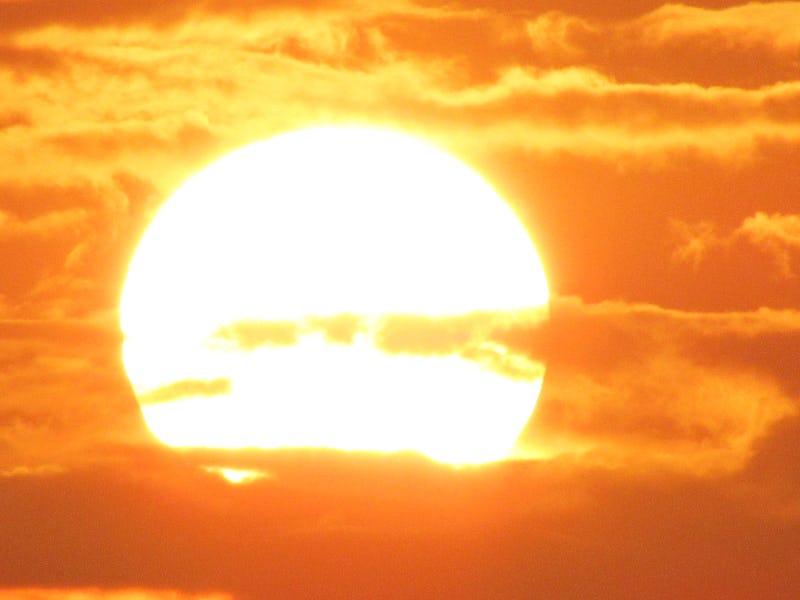Yes, You Can Blind Yourself Staring at the Sun
Don't be like Newton – wear solar shades during the total solar eclipse.

In 2008, word spread through India’s Kottayam district that an apparition of the Virgin Mary was hovering in the sky, prompting eager viewers to sacrifice their eyeballs as they scoured the heavens for a biblical ghost. In the aftermath of the solar onslaught, around 50 people were blinded by the sun.
The hospital’s eye doctor, Dr. Annamma James Isaac, found that these folks had literally burned their eyes, causing photochemical damage. The most common photochemical burn is a sunburn, in which the sun’s UV ray’s mutilate and kill skins cells. In the case of the human eye, this sunlight is projected onto the back of the eyeball – the retina — which contains cells that are super sensitive to light and transform the light we see into brain signals. Once damaged, these invaluable cells can’t be healed, leaving the eye unable to send this vital information to the brain.
During the astronomical event of the year, the solar eclipse on August 21, it might be tempting to steal a glance at our dangerously radiant sun. It probably won’t blind you, but it will likely cause some damage. Fortunately, Inverse provides some insight into cheap and easy-to-find solar viewers that allow you to view the eclipse in action as the moon incrementally moves over the sun.
Newton's sun-gazing damaged his eyes and caused him tremendous pain. He was fortunate not to go blind.
For the misguided few that are compelled to stare skyward without protection, it probably takes upwards of 10 seconds to have the sun sear your eyeballs beyond use, according to a report from the Cambridge Ophthalmological Symposium. Doing this isn’t just senseless, it’s also agonizing, so most people will be physiologically discouraged from blinding themselves.
Historically, not all sun-seekers have been in an intense search for god, like the unfortunate dozens in India. In his early twenties, Sir Isaac Newton stood in a dark room – to enlarge his pupils and take in the maximum amount of light – and stared at the sun’s reflection in a mirror. In this somewhat-psychedelic experiment, Newton hoped to create an after-image effect. Naturally, Newton harmed his eyes, and retreated to a dark room for three days, not wanting to have anything to do with the sun.
Indeed, the solar eclipse may charm you this summer, but even staring up while the moon has partially covered the sun is foolish. Just ask that curious fellow who wrote the universal laws of gravitation.